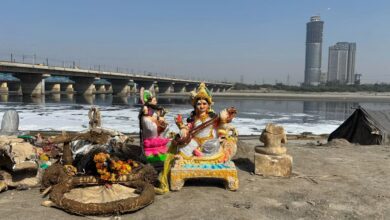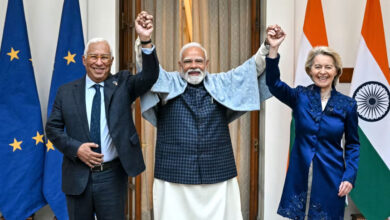India secretly executed the lone survivor of a Pakistan-based militant squad on Wednesday, just days before the fourth anniversary of an attack that killed 166 people in a rampage through the financial capital Mumbai.
Pakistan national Mohammad Ajmal Kasab was the enduring image of the bloody assault, which traumatized India and raised fears of copycat attacks on foreign cities. Pictures of the young gunman wearing a black T-shirt and toting an AK-47 rifle as he strode through Mumbai's train station were published around the world.
Kasab was hanged amid great secrecy, underscoring the political sensitivity of the 26 November 2008, massacre, which still casts a pall over relations between nuclear-armed rivals Pakistan and India.
"All the police officers and personnel who lost their life in the battle against the terrorists have today been served justice," Home Minister Sushil Kumar Shinde said after Kasab was hanged in a jail in Pune, southeast of Mumbai.
A senior commander of Pakistan's Lashkar-e-Taiba (LeT) militant group, which India blames for the assault on Mumbai, called Kasab a hero and said he would inspire more attacks.
"To die like Kasab is the dream of every fighter," the commander told Reuters by telephone from an undisclosed location.
The Pakistan Taliban said they were shocked by the hanging.
"There is no doubt that it's very shocking news and a big loss that a Muslim has been hanged on Indian soil," Taliban spokesman Ihsanullah Ihsan told Reuters.
Kasab was buried inside the prison where he was hanged, officials said. India said it would hand over the body to Pakistan if a request was made.
It was the first time a capital sentence had been carried out in India since 2004. There was relief on the streets of Mumbai as news of the execution swiftly spread.
"When I heard the news of Kasab's execution today, I remembered those horrifying moments of the attack," said Vishnu Zende, who was working at Mumbai's train station on the day of the attack.
"My eyes were filled with tears."
This year Saudi Arabia extradited an Indian-born militant accused of being one of the masterminds of the Mumbai attacks. Police say Sayeed Zabiuddin Ansari, also known as Abu Jindal, helped coordinate the attack from a "control room" in the Pakistani city of Karachi and also helped to train the gunmen.
In August, India's Supreme Court upheld Kasab's 2010 death sentence over the attacks on a string of targets. Nearly 60 people were gunned down in the train station alone. President Pranab Mukherjee rejected his plea for clemency on 5 November, although this was not made public until Tuesday night.
The timing of the execution, shortly before a series of state elections, may be beneficial for the government, which opposition leaders accuse of being soft on national security.
Narendra Modi, the opposition chief minister of Gujarat state, which goes to the poll in December and borders Pakistan, said on Twitter the government should move faster to execute Afzal Guru, convicted of a 2001 attack on parliament.
'Foot soldier'
Ten militants arrived on the Mumbai shoreline in a dinghy on 26 November 2008, before splitting into four groups and embarking on a killing spree. They held off elite commandos for up to 60 hours in two luxury hotels and a Jewish center in the city.
India says Islamabad is failing to act against those behind the raids, including LeT founder Hafiz Saeed, who has a $10 million US bounty on his head. Pakistan admits the attacks were planned on its soil, but denies official involvement.
It says seven suspected militants are being prosecuted for their role.
"Kasab was a foot soldier, the generals are in Islamabad, in Pakistan, and full justice will be done when they are brought to justice," Gopalapuram Parthasarathy, a former ambassador to Pakistan, told Reuters.
Improving relations with Pakistan is a keystone of Prime Minister Manmohan Singh's foreign policy. Singh, who was born in present-day Pakistan when it was still part of British India, has repeatedly postponed visiting the country because of lack of progress on convicting the Mumbai suspects.
However, India and Pakistan's relations have gradually improved since the attacks, with progress made on trade and economic ties.
Possibly because of the planned execution, India on Tuesday asked Pakistan to postpone a visit this week by Interior Minister Rehman Malik, saying the dates were "not suitable for us." Malik was due to put the final seal on a deal to ease visa restriction for travelers.
Kasab's execution happened very quickly for India's usually glacial justice system. Three people convicted of the assassination of former Prime Minister Rajiv Gandhi are still on death row, 21 years after he was killed by a suicide bomb.
In Pakistan, many said the hanging happened quickly only because of his nationality. People questioned whether Kasab was really guilty, despite the video evidence.
"We have images of him but do we have any other evidence? Is that enough?," said Jehan Zulqarnain, a primary school teacher in Islamabad.
Pakistan was informed beforehand about Kasab's execution, said a Pakistani foreign ministry official who asked not to be identified.
"If all judicial procedures were followed then the decision is acceptable," the official said.




